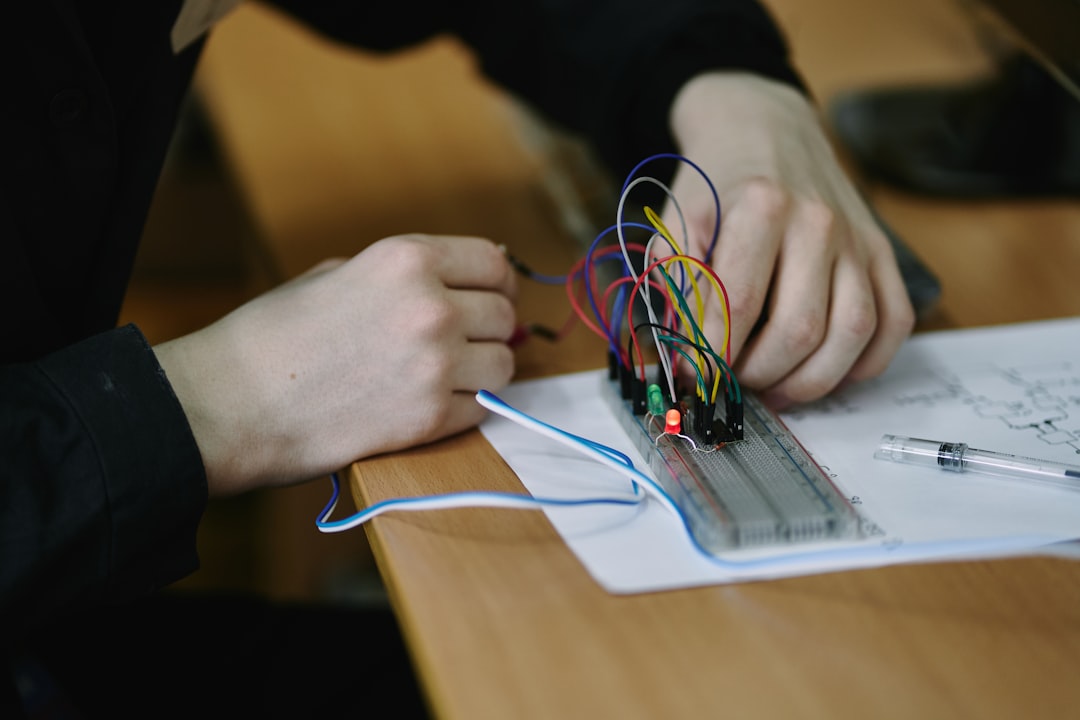“`html
Blockchain and the Future of Education Credentials
The paper diploma, once a symbol of achievement, is rapidly becoming an archaic relic. In a digital age, verifying credentials, sharing achievements, and managing educational records has become increasingly complex. Enter blockchain, a technology initially known for cryptocurrencies, that is quietly revolutionizing how we handle education credentials.
Why Blockchain Matters for Education
The core problem blockchain solves is trust. Traditional systems for verifying degrees and certificates are often cumbersome, time-consuming, and prone to fraud. Employers spend considerable resources confirming the validity of qualifications. Learners struggle to easily share their accomplishments with potential employers or institutions. Blockchain offers a secure, transparent, and immutable way to record and verify educational achievements.
Think of it this way: instead of relying on a single institution to vouch for a student’s achievement, the information is distributed across a network of computers. Any alteration to a record is immediately visible and detectable, making forgery practically impossible.
How Blockchain is Transforming Education Credentials
The shift towards blockchain-based education credentials is already underway, manifested in several key ways:
- Digital Diplomas and Certificates: Institutions are issuing digital versions of degrees and certificates secured by blockchain. These digital credentials can be easily shared online and instantly verified.
- Micro-credentials and Badges: Blockchain facilitates the tracking and validation of micro-credentials – small, focused learning achievements. This is particularly relevant for skills-based training and professional development.
- Learning Record Wallets: Students can create secure digital wallets to store all their educational records, from transcripts to certificates, providing them with greater control over their data.
- Streamlined Verification: Employers and institutions can instantly verify credentials without contacting the issuing institution, saving time and reducing administrative burden.
The Impact on Learners, Institutions, and Employers
For Learners:
Blockchain empowers learners by giving them ownership and control over their educational records. They can easily share their achievements with potential employers, track their learning progress, and build a verifiable portfolio of skills. This portability is especially beneficial for individuals who move frequently or pursue non-traditional learning pathways.
For Institutions:
Blockchain enhances the reputation of institutions by providing a tamper-proof system for issuing and verifying credentials. This reduces the risk of fraudulent claims and improves the efficiency of administrative processes. Moreover, institutions can use blockchain to track student learning outcomes and personalize educational experiences.
For Employers:
Blockchain streamlines the hiring process by providing employers with a reliable way to verify the qualifications of job applicants. This reduces the risk of hiring unqualified candidates and saves time and resources spent on background checks. It also enables employers to identify candidates with the specific skills and knowledge they need.
Challenges and Considerations
While the benefits of blockchain in education are significant, there are also challenges to overcome. These include:
- Interoperability: Ensuring that different blockchain-based credential systems can communicate and exchange data is crucial for widespread adoption.
- Data Privacy: Protecting the privacy of student data is paramount. Blockchain systems must be designed to comply with data privacy regulations such as GDPR.
- Scalability: Blockchain networks need to be able to handle the large volume of transactions associated with education credentials.
- Accessibility: Ensuring that all learners have access to the technology and skills needed to manage blockchain-based credentials is essential.
- Regulation: Clear regulatory frameworks are needed to provide legal certainty and address issues such as liability and data ownership.
The Future Outlook: Beyond Diplomas
The future of blockchain in education extends beyond simply issuing digital diplomas. We can anticipate:
- Personalized Learning Pathways: Blockchain can track individual learning progress and recommend personalized learning pathways based on their skills and interests.
- Lifelong Learning Records: Blockchain can create a comprehensive record of an individual’s learning achievements throughout their life, including formal education, informal learning, and professional development.
- Skill-Based Hiring: Blockchain can facilitate skill-based hiring by providing employers with verifiable evidence of an applicant’s skills and competencies.
- Decentralized Learning Platforms: Blockchain can power decentralized learning platforms that allow learners to connect directly with educators and access educational resources without intermediaries.
The potential for blockchain to transform education is immense. As the technology matures and adoption increases, we can expect to see a more transparent, secure, and learner-centric education system. The benefits aren’t just theoretical; real-world applications are proving its worth. A BBC article highlights the potential of blockchain to fight fake degrees, illustrating the very real threat blockchain addresses. Moreover, the use of blockchain in tracking supply chains, as reported by Reuters (article about blockchain applications, though not *specifically* education) demonstrates the technology’s reliability and security in managing crucial data.
Consider the impact on global mobility. Imagine a refugee’s educational qualifications, often undocumented due to displacement, being securely and verifiably recorded on a blockchain. This could unlock opportunities that were previously inaccessible. The possibilities are truly transformative.
One final important note is about the evolution of web3 and its relation to verifiable credentials. As the internet moves toward decentralization and user data ownership, blockchain-secured educational credentials will become an integral component, seamlessly integrated into digital identities and professional profiles. It represents a move away from institutional control toward individual empowerment in education.
“`

